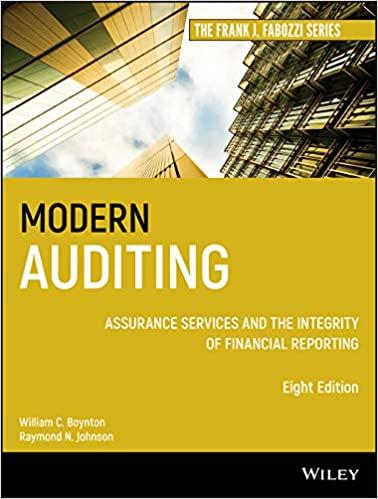Question
Problem 5-35 (LO 5-1, 5-2, 5-3, 5-4, 5-5, 5-6, 5-7) The individual financial statements for Gibson Company and Keller Company for the year ending December
Problem 5-35 (LO 5-1, 5-2, 5-3, 5-4, 5-5, 5-6, 5-7)
The individual financial statements for Gibson Company and Keller Company for the year ending December 31, 2018, follow. Gibson acquired a 60 percent interest in Keller on January 1, 2017, in exchange for various considerations totaling $780,000. At the acquisition date, the fair value of the noncontrolling interest was $520,000 and Kellers book value was $1,040,000. Keller had developed internally a customer list that was not recorded on its books but had an acquisition-date fair value of $260,000. This intangible asset is being amortized over 20 years.
Gibson sold Keller land with a book value of $80,000 on January 2, 2017, for $170,000. Keller still holds this land at the end of the current year.
Keller regularly transfers inventory to Gibson. In 2017, it shipped inventory costing $217,000 to Gibson at a price of $310,000. During 2018, intra-entity shipments totaled $360,000, although the original cost to Keller was only $234,000. In each of these years, 20 percent of the merchandise was not resold to outside parties until the period following the transfer. Gibson owes Keller $40,000 at the end of 2018.
| Gibson Company | Keller Company | ||||||
| Sales | $ | (960,000 | ) | $ | (660,000 | ) | |
| Cost of goods sold | 660,000 | 460,000 | |||||
| Operating expenses | 150,000 | 35,000 | |||||
| Equity in earnings of Keller | (99,000 | ) | 0 | ||||
| Net income | $ | (249,000 | ) | $ | (165,000 | ) | |
| Retained earnings, 1/1/18 | $ | (1,276,000 | ) | $ | (700,000 | ) | |
| Net income (above) | (249,000 | ) | (165,000 | ) | |||
| Dividends declared | 150,000 | 50,000 | |||||
| Retained earnings, 12/31/18 | $ | (1,375,000 | ) | $ | (815,000 | ) | |
| Cash | $ | 185,000 | $ | 70,000 | |||
| Accounts receivable | 388,000 | 570,000 | |||||
| Inventory | 550,000 | 480,000 | |||||
| Investment in Keller | 981,000 | 0 | |||||
| Land | 130,000 | 550,000 | |||||
| Buildings and equipment (net) | 512,000 | 460,000 | |||||
| Total assets | $ | 2,746,000 | $ | 2,130,000 | |||
| Liabilities | $ | (621,000 | ) | $ | (755,000 | ) | |
| Common stock | (750,000 | ) | (480,000 | ) | |||
| Additional paid-in capital | 0 | (80,000 | ) | ||||
| Retained earnings, 12/31/18 | (1,375,000 | ) | (815,000 | ) | |||
| Total liabilities and equities | $ | (2,746,000 | ) | $ | (2,130,000 | ) | |
(Note: Parentheses indicate a credit balance.)
Prepare a worksheet to consolidate the separate 2018 financial statements for Gibson and Keller.
How would the consolidation entries in requirement (a) have differed if Gibson had sold a building with a $140,000 book value (cost of $300,000) to Keller for $260,000 instead of land, as the problem reports? Assume that the building had a 10-year remaining life at the date of transfer.
Prepare a worksheet to consolidate the separate 2018 financial statements for Gibson and Keller. (Do not round intermediate calculations. For accounts where multiple consolidation entries are required, combine all debit entries into one amount and enter this amount in the debit column of the worksheet. Similarly, combine all credit entries into one amount and enter this amount in the credit column of the worksheet. Amounts in the Debit and Credit columns should be entered as positive. Negative amounts for the Noncontrolling Interest and Consolidated Totals columns should be entered with a minus sign.)
Show less
| ||||||||||||||||||||||||||||||||||||||||||||||||||||||||||||||||||||||||||||||||||||||||||||||||||||||||||||||||||||||||||||||||||||||||||||||||||||||||||||||||||||||||||||||||||||||||||||||||||||||||||||||||||||||||||||||||||||||||
How would the consolidation entries in requirement (a) have differed if Gibson had sold a building with a $140,000 book value (cost of $300,000) to Keller for $260,000 instead of land, as the problem reports? Assume that the building had a 10-year remaining life at the date of transfer. (Do not round intermediate calculations. If no entry is required for a transaction/event, select "No journal entry required" in the first account field.)
| No | Transaction | Accounts | Debit | Credit |
|---|---|---|---|---|
| 1 | 1 | Buildings | ||
| Retained earnings | ||||
| Accumulated depreciation | ||||
| 2 | 2 | Accumulated depreciation | ||
| Operating expenses |
Step by Step Solution
There are 3 Steps involved in it
Step: 1

Get Instant Access to Expert-Tailored Solutions
See step-by-step solutions with expert insights and AI powered tools for academic success
Step: 2

Step: 3

Ace Your Homework with AI
Get the answers you need in no time with our AI-driven, step-by-step assistance
Get Started


